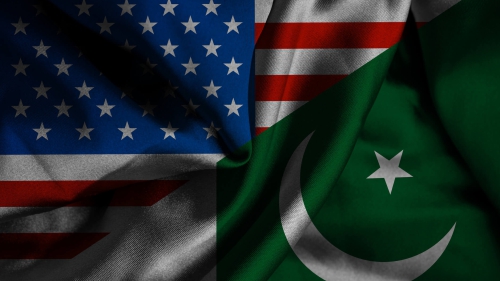Our Finger Still on the Wrong Button this Election Season

Another election season is squarely upon us, yet there are so many things this literate nation is still unable to square away. Literacy is useless when full disclosure is absent. Literacy is inadequate when judgment is impaired by bias. Then solutions to problems will be belabored, inorganic and in-congruent. And if hubris becomes a fellow journeyman, then God help us!
We are so locked in our ways that it’s hard to understand how institutions like Harvard and Yale could be gracing us, the free and brave souls from coast to coast. So, let’s see how we could clear the national docket of preposterous propaganda espousing a litany of poor policies. Of the perennial problems, I deal with US factories moving abroad, immigration, wealth concentration, and Muslims at home.
Moving Out to Survive. Low labor cost will draw industries outside any country’s borders, even Bangladesh’s. If certain industries did not leave the US when they did, starting in the 1980s, then just like electronic, watch, and garment industries that exited Western ownership and transferred to Japan in the 1960s, then we would have been hit by double whammies: a loss of ownership and a loss of location. Now, we have to deal only with the latter pain. The upside, of course, is that, thanks also to WTO, the countries in Africa, Asia and South and Central America to which the US could not sell her products due to high domestic production cost, she can do so now. So, just as US factories have located outside her borders so also her global market has expanded. As an example, for the very first time in Bangladesh, Asian produced and American owned lower priced Carrier air conditioners, Whirlpool washers and dryers, and TI calculators are finding buyers.
Immigration. Now, is it possible that the maquiladora arrangement “favoring” Mexico also favors the US other than just economically? People from Eastern Europe like relocating to Western Europe, why? Yet the same problem is not that glaring among the Western European countries. The latter group has achieved economic development at a similar historic pace. Mexico, unlike Canada to our north, is like Eastern Europe or worse. From an immigration perspective, it’s in our best national interest to jointly lead Mexico’s drive toward industrialization.
This has staved off countless immigrants and will stave off more in the future. So, helping maquiladoras to take root there is also a good immigration policy. BTW, compared with factories going to Asia, locating factories in Mexico not only gives similar lower wages but additionally lower transportation cost for goods shipped back to the US. In an age of almost stagnant wages, the middle and lower income buyers benefit from lower or slowly rising prices.Incidentally, for those still beholden to the old ways of the South, must remember that if the Union had fallen during the Civil War, then the southern part of the split-US would likely have been like Mexico and Brazil, feudal, poor, illiterate and under-industrialized. Not only blacks, but whites, would have been streaming across the border northward in droves. Perhaps then a big, tall, long, barb-wired, electrified fence separating the two parts would have been a suitable solution? No!
Top One Percent. Lumping is always bad. Clarity is lost. Wrong lessons are drawn. Poor policies enacted. Can it true that the top one percent hogging US national assets is all by some nefarious design? The operative word is “all”. Technologically and stock market driven gains need to be separated as also must be gains from highly leveraged entertainment and sports industries from some of the other engines of concentration. As the real sector expanded traditional elements of the nominal sector would have felt the pinch, relatively speaking. To maintain its own share of the national asset and hold its stock value, the nominal sector may be found complicit in having either violated or changed rules, kept wages and benefits low and untended, and healthcare held at bay. Of course, Venture Capital innovation is an extraordinary, legitimate, innovative feat of the nominal sector. Also, for decades, the oil and gas industry, by playing the market speculatively, have assured themselves a “healthy” share of national assets. Further, tax cuts along with tax evasion and use of tax loopholes have made the asset distribution as it is.
Now, if one does not care about the Brazilization of the US economy, then skewed wealth distribution is not bad. When squalor overtakes neighborhoods and infrastructure crumbles expanding the underbelly, as education lags, healthcare access is undervalued, hunger spreads, crime spikes, and restlessness becomes endemic then we are likely to find a glittering Olympic Games face off the sordidness typical of the other Rio. In such cases, greedy supply siders are unable to comprehend the importance of the demand side for a fully functioning modern economy. This is the reality of quasi-feudal economies like that of Brazil. This model was rejected in the US in the early part of the 20th century when the express goal of the Ford Motor Company was to make its cars affordable to the average American. The danger of asset concentration is that it concentrates power and disintegrates civility, fair play and common sense underlying any modern national agenda. In ways it is like sanctioning the volatile mix that led to ‘us vs. them’ militant language of Marxism of the 19th and 20th centuries.
This year, as with any national election, there are many outstanding issues to be resolved. Will the new President-elect have the vision and the wherewithal to at least address them, if not fix them? Not as far as we can tell from our fact checking because the pre-election fact checking by the media does not cover any of the discoveries and deductions of this article. Most of those fat-checkers are not designed to enquire into many pertinent domestic and international, economic and political scenarios made irrelevant by our predisposition.

















